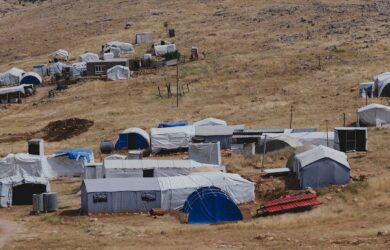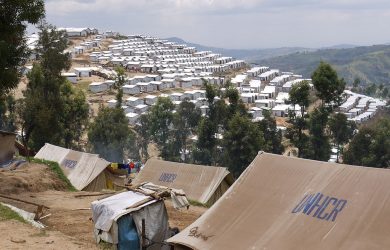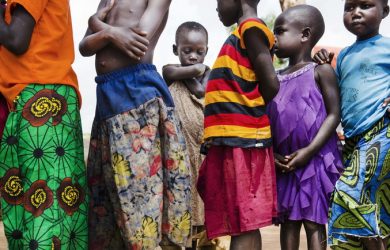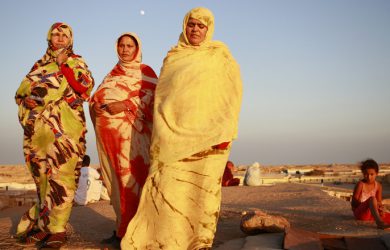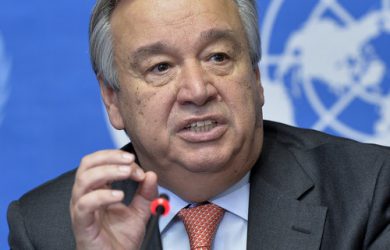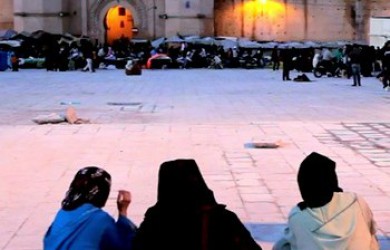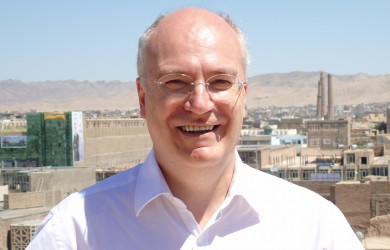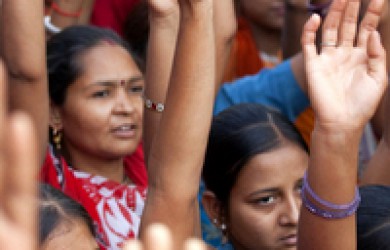- ABOUT US
- RESEARCH
- EDUCATION
- The Graduate School
- PhD Programme
- MSc Programmes
- Capacity Development
- News
- Design and Evaluation of Public Policies (DEPP)
- Design and Evaluation of Innovation Policies (DEIP)
- Evidence-Based Policy Research Methods (EPRM)
- Migration Management Diploma Programme (MMDP)
- Moving the Migration Policy Agenda Forward (MMPAF)
- Online Courses
- Short Courses (Masters)
- Tailor-made programmes
- UNU-MERIT, ITU Academy Training Centre
- Alumni
- Academic Funding
- NEWS
- EVENTS
- PUBLICATIONS
- LIBRARY
Latest developments in global refugee policy: UNU-MERIT expert Melissa Siegel weighs in
18 December 2023
On 13 to 15 December, the Global Refugee Forum 2023 – the world’s largest international gathering on refugees – took place in Geneva, Switzerland. Launched in 2019 and held once every four years, the Forum assembles world leaders to discuss international progress on the four key objectives of the UN’s Global Compact for Refugees framework, which are: Ease the pressures on host countries Enhance refugee self-reliance Expand access to third country solutions Support conditions in...
Continue Reading →Mygration Story: Crossing boundaries, staying true
12 November 2019
In many parts of the world free-will and decision-making are not considered natural rights for women. I was born and raised in one such country, where women have to negotiate or fight against man-made laws on a daily basis. When I use the term “man-made laws” I refer not only to the legal system but also the culture, which is inherently restrictive towards females....
Continue Reading →Global Compact on Refugees: Breaking new ground or going round in circles?
06 February 2019
Though most eyes were on the Global Compact for Safe, Orderly and Regular Migration, the UN General Assembly adopted another accord in December 2018: the Global Compact on Refugees. While labelled “a powerful expression of multilateralism in today’s fragmented world” by UN High Commissioner for Refugees, Filippo Grandi, the question remains whether the compact is simply ‘old wine in new bottles’ — as many of its topics have already received attention in the academic and policy ...
Continue Reading →Why give social protection to protracted refugees? Time to refocus responsibilities and moral obligations
18 July 2018
The paradigm of long-term delivery of short-term aid needs to be reconsidered — because the current system is barely functional or sustainable. This implies building a new bridge between humanitarian aid and long-term human development. But what exactly does that mean? A key part of the process is to examine the many complex factors at play, including the issue of responsibility. This post considers the moral nature of the so-called ‘duty bearer’ in more detail. ...
Continue Reading →Rethinking humanitarian aid: A call for humanitarian social protection
20 June 2018
On average in 2017, a person became displaced every two seconds. Figures further indicate that a staggering 68.5 million people were displaced by the end of that year — and of that number 25.4 million were refugees. The majority of refugees flee to neighbouring countries; which tend to be among the low to lower middle income countries....
Continue Reading →António Guterres: An SG for All Seasons?
17 October 2016
After months of campaigning the United Nations Security Council (UNSC) has elected Mr António Manuel de Oliveira Guterres of Portugal to serve as the ninth UN Secretary-General. Much has been made of his personal qualities and professional qualifications — but what can be said of the election itself? Was the open process a game changer or little more than window dressing? In this election there were many voices, including Ban-ki Moon, calling for the next UN Chief to be a woman. There has ...
Continue Reading →World Refugee Day, 20 June: New Highs, New Flows
18 June 2015
There are now 59.5 million refugees worldwide, according to the latest figures from UNHCR. Ahead of World Refugee Day, 20 June 2015, we assembled a roundtable of experts — Prof. Ronald Skeldon, Dr. Melissa Siegel, and Dr. Katie Kuschminder — to put the major issues in perspective: from Myanmar to the Mediterranean, statelessness to child refugees. Below is an edited transcript and various media drawn from the roundtable, which was moderated by Howard Hudson. In 2012, UNHCR said there...
Continue Reading →Displacement, Refugees & the New World Disorder: Seminar
26 May 2015
In a seminar on 26 May 2015, Ewen MacLeod, Head of the Policy Development and Evaluation Service (PDES) of the UN Refugee Agency, focused on the impact of emerging global trends – population growth, climate change, urbanisation, and migration – on current arrangements for the management of forced displacement. MacLeod highlighted the changing nature of war, conflict and violence since the end of the Cold War as an explanation for the growth in internal displacement and protracted refugee situati...
Continue Reading →‘First Impressions’ Press Review: July 2014
31 July 2014
Our press review features the latest publications by UNU-MERIT and its School of Governance. Output for July includes five working papers, three journal articles and a conference paper: analysing social enterprise in India, urban planning in Colombia, and the UNHCR’s work in Afghanistan, among many others. Working Papers ‘Does Shelter Assistance Reduce Poverty in Afghanistan?’ assesses the UNHCR post-return shelter assistance programme in Afghanistan, 2009-2011. This working paper finds th...
Continue Reading →Archives
Contact
UNU-MERIT
Boschstraat 24
6211 AX Maastricht
The Netherlands
T: +31 43 388 44 00
Email: info@merit.unu.edu
Boschstraat 24
6211 AX Maastricht
The Netherlands
T: +31 43 388 44 00
Email: info@merit.unu.edu
Partner sites
Newsletters
© 2024 UNU-MERIT | Maastricht University


